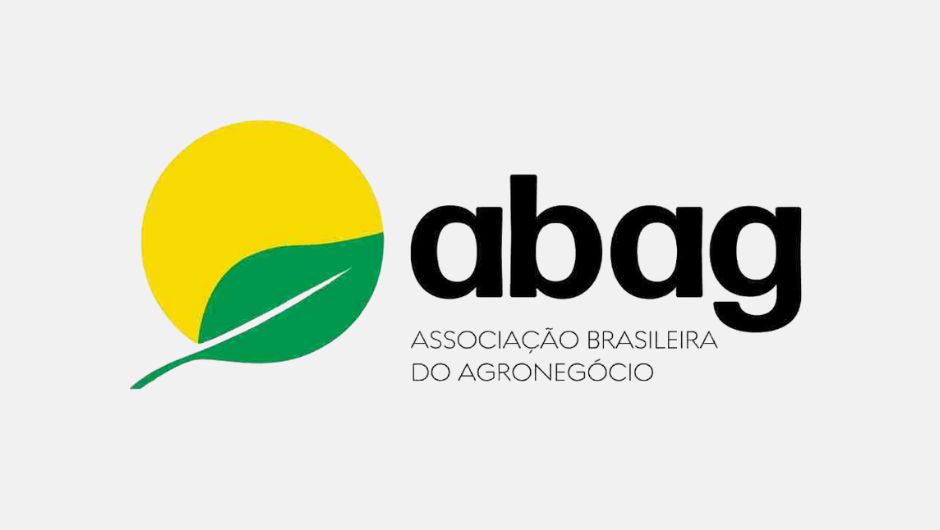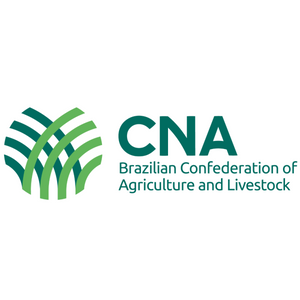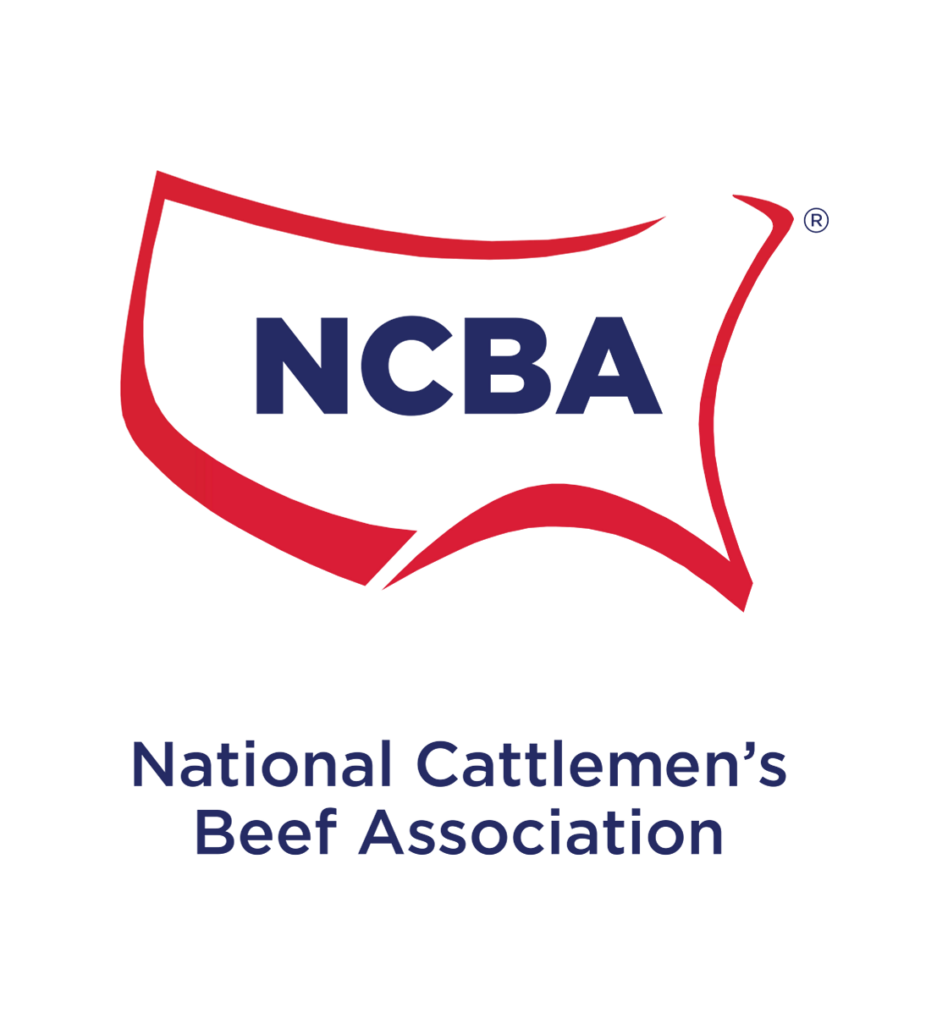Background
The Brazilian Agribusiness Association (Abag) is one of the lead trade groups representing major agribusiness companies operating in Brazil.
Currently, it has more than 70 member companies,1“Associadas,” Abag. Archived August 4, 2025. Archive URL: https://archive.ph/LIYjL including agrochemical giants such as Bayer, BASF, and Syngenta, as well as major meat corporations such as JBS and Cargill. The Brazilian Agricultural Research Corporation (Embrapa) — a public company linked to the Ministry of Agriculture and Livestock — is also affiliated with Abag.
The group was founded in 1993 with the goal of “establishing within Brazilian agribusiness an organization focused on sustainable development, bringing the sector — and all its stakeholders — closer to the national and international economy.”2 “Quem Somos,” Abag. Archived August 8, 2025. Archive URL: https://archive.ph/jP4Ci It brings together entities from all links in the agribusiness production chain, “from the field to industry, distribution, and services.”
While it states its commitment to tackling climate change and other environmental challenges,3“Agronegócio Frente às Mudanças Climáticas,” Abag, August 10, 2025. Archived September 7, 2025. Archive URL: https://archive.ph/cYEpq
Abag has been involved in numerous efforts to downplay the sector’s impacts, promote a positive image of agribusiness, and stave off discussions about regulation.4 “The New Merchants of Doubt,” Changing Markets, 2024. Archived September 8, 2025. Archived .pdf on file at DeSmog.
Abag also does not acknowledge or support key pollution-cutting measures that scientists say are needed from the food sector in order to meet climate goals, such as reducing meat production in high and middle countries, including in Brazil.5“Agronegócio Frente às Mudanças Climáticas,” Abag, 2025. Archived November 4, 2025. Archived .pdf on file at DeSmog.
Instead, in a 2025 document outlining its position on the environment, it promotes measures such as the adoption of new technologies, soil-based offsets, and intensification to bring down emissions all of which scientists say will be insufficient to bring down emissions from [Brazilian] livestock.6Harwatt et al., “Options for a Paris-Compliant Livestock Sector,” Harvard Law School, March 2024. Archived September 23, 2025. Archived .pdf on file at DeSmog.
Abag was active ahead of COP30 and coordinated with other major agribusiness groups to present livestock — Brazil’s largest emitting sector — as a “solution” to climate change.7Gabriella Weiss, “Agribusiness leaders seek unified message for COP30,” Valor International, April 24, 2025. Archived April 25, 2025. Archive URL: https://archive.ph/yx26x Abag also regularly hosts events,8 “Evento,” Abag. Archived June 17, 2025. Archive URL: https://archive.ph/nfKK9
which are attended by high-level decision-makers, to promote the interests of industrial agriculture.9“Início,” Congresso Abag. Archived September 7, 2025. Archive URL: https://archive.ph/71gZD
The group is the primary representative for a sector with highly destructive environmental impacts in Brazil. Agribusiness is responsible for 74 percent of the country’s greenhouse gas emissions and about 97 percent of native vegetation loss between 2019 and 2024, mainly in the Amazon rainforest and the Cerrado savannah.10“Produção de comida responde por 74% das emissões do Brasil,” Observatório do Clima, October 24, 2023. Archived May 31, 2025. Archive URL: https://archive.ph/mg9PX 11“Agropecuária impulsiona mais de 90% do desmatamento no mundo,” Observatório do Clima, September 8, 2022. Archived August 15, 2025. Archive URL: https://archive.ph/i4j2i
Abag is an affiliated member of the pro-agribusiness think tank Instituto Pensar Agro. The IPA has worked to secure the approval of several anti-environmental laws,12“CNA defende constitucionalidade da lei do marco temporal,” Pensar Agro, August 7, 2024. Archived May 13, 2025. Archive URL: https://archive.ph/eNEKH such as the Temporal Framework Law, a bill that restricts the demarcation of and access to land for Indigenous populations, the New Pesticides Law,13“LEI Nº 14.785,” Presidência da República, Casa Civil, Secretaria Especial para Assuntos Jurídicos. Archived September 10, 2025. Archive URL: https://archive.ph/LCymw nicknamed the Poison Bill (Projeto de Lei do Veneno) by environmentalists, and the “Devastation Bill”, which allows self-licensing of environmental permits and weakens protections for forests and traditional territories.14Carlos Juliano Barros, “Aprovação do ‘PL da Devastação’ no Senado será ‘maior retrocesso’, diz manifesto,” Repórter Brasil, May 20, 2025. Archived July 22, 2025. Archive URL: https://archive.ph/xbnIA
Stance on Climate Change
Abag has positioned agriculture as a “solution” to climate change. For example, in a report released ahead of COP30, prepared in partnership with the pro-agribusiness think tank Instituto Pensar Agro (IPA), Abag argued “the agribusiness production chain positions itself as a fundamental part of the solution, with great potential to mitigate emissions and promote food security.”
It also argues that agricultural development can go hand in hand with work to meet environmental goals. For example, Abag has stated that — through using measures such as “sustainable agricultural practices” and biofuels, and carbon removals, it can meet the goal of “aligning agribusiness with environmental preservation.”15“Agricultura como resposta aos desafios do clima, Brasil protagonista,” Abag, February 7, 2025. Archived June 21, 2025. Archive URL: https://archive.ph/PWNKS
Despite Abag’s portrayal of agribusiness as a “solution to climate change”, science shows that the sector is responsible for a quarter to a third of emissions worldwide,16Hannah Ritchi, “How much of global greenhouse gas emissions come from food?,” Our World in Data, March 18, 2021. Archived September 13, 2025. Archive URL: https://archive.ph/iPeKE and 74 percent of Brazil’s greenhouse gas emissions.17“Produção de comida responde por 74% das emissões do Brasil,” Observatório do Clima, October 24, 2023. Archived May 31, 2025. Archive URL: https://archive.ph/mg9PX A 2020 paper published in the journal Science found emissions from the current food system alone would breach agreed climate targets to keep global warming within safe limits.18Clark et al., “Global food system emissions could preclude achieving the 1.5° and 2°C climate change targets,” Science, November 6, 2020. DOI: 10.1126/science.aba7357 Archived .pdf on file at DeSmog.
While Abag promotes methods such as the conversion of biofuels into energy, and carbon removals through offsetting, as a solution to the sector’s large carbon footprint, scientists say these methods have a limited role to play in bringing down agriculture’s emissions, and — even in middle-income countries like Brazil, will need to be accompanied by a reduction in the size of livestock herds.19Harwatt et al., “Options for a Paris-Compliant Livestock Sector,” Harvard Law School, March 2024. Archived September 23, 2025. Archived .pdf on file at DeSmog. 20Joe Fassler, “Research Undermines Claims that Soil Carbon Can Offset Livestock Emissions,” DeSmog, February 1, 2024. Archived August 18, 2025. Archive URL: https://archive.ph/Tuc7Z
Environmental campaign groups maintain that biofuels — which are often derived from monocrops, and can also contribute to deforestation and the destruction of native wildlife — are, on balance, even more high-emitting than fossil fuels.21“Biofuels globally emit more CO2 than the fossil fuels they replace – study,” T&E, October 9, 2025. Archived October 10, 2025. Archive URL: https://archive.ph/BFlwu
The recent Food Systems Economic Commission recommended reductions of up to 62 percent in meat consumption in middle-income countries, for both health and environmental reasons.22“The Economics of the Food System Transformation,” Food Systems Economics Commission, 2024. Archived September 6, 2025. Archived .pdf on file at DeSmog.
Key Actions
July 2025
Abag adopted a neutral stance regarding the Environmental Licensing Bill.23“Licenciamento ambiental: o que diz o agro sobre projeto que flexibiliza a lei,” O Globo, July 17, 2025. Archived July 20, 2025. Archive URL: https://archive.ph/9Hai4 Nicknamed by environmentalists as the “Devastation Bill,” the measure allows for self-licensing and weakens the protection of traditional territories.24Carlos Juliano Barros, “Aprovação do ‘PL da Devastação’ no Senado será ‘maior retrocesso’, diz manifesto,” Repórter Brasil, May 20, 2025. Archived July 22, 2025. Archive URL: https://archive.ph/xbnIA The decision contrasts with that of other agribusiness representative entities, such as the National Confederation of Agriculture and Livestock of Brazil (CNA), which supported the bill and called it a “modernizing measure.”25“Licenciamento ambiental: o que diz o agro sobre projeto que flexibiliza a lei,” O Globo, July 17, 2025. Archived July 20, 2025. Archive URL: https://archive.ph/9Hai4
“The simple filling out of a self-declaration form will now be sufficient to guarantee exemption, without any verification of environmental impacts or of commitments made under environmental regularization programs,” said an open letter from Observatório do Clima on the bill.26“Observatório do Clima e Saúde divulga nota pública sobre a aprovação do PL que altera as regras do licenciamento ambiental,” Agência Fiocruz de Notícias, July 18, 2025. Archived November 4, 2025. Archive URL: https://archive.ph/8wHdx
April 2025
Ahead of COP30 — the annual, international climate negotiations, which take place in November 2025 Belém, Roberto Azevêdo, former Director-General of the World Trade Organization and currently an Abag advisor, stated the summit was an opportunity for agribusiness to change the global perception of its impacts.27Gabriella Weiss, “Agribusiness leaders seek unified message for COP30,” Valor International, April 24, 2025. Archived April 25, 2025. Archive URL: https://archive.ph/yx26x
“If we fail to show how Brazilian agribusiness contributes to sustainability, we will miss the opportunity that COP30 presents. The truth won’t resonate if it’s not told clearly,” he said. He also noted, in line with statements made by JBS CEO Gilberto Tomazoni, that the role of agriculture in carbon capture is often omitted in global discussions.28Clarice Couto, “JBS quer ampliar ‘credencial verde’ com revisão de impacto ambiental de criação de gado,” Bloomberg Línea, August 11, 2025. Archived October 10, 2025. Archive URL: https://archive.ph/Ym2HR
September 2023
Abag publicly supported the Time Frame Law,29Gabriel Azevedo, “Abag defende marco temporal para demarcação de terras indígenas,” Canal Rural, September 26, 2023. Archived June 15, 2025. Archive URL: https://archive.ph/KzYgd legislation that restricts and complicates the recognition and demarcation of Indigenous territories stating they can “only claim lands that they occupied or disputed on the date of the promulgation of the current Constitution (October 5, 1988).”30Senadores cobram votação de propostas sobre marco temporal de terras indígenas,” Senado Notícias, February 21, 2025. Archived August 3, 2025. Archive URL: https://archive.ph/gJZFE
The Supreme Federal Court struck down the law, but the issue remains under debate, as several legal actions have been filed both in favor of and against the legislation. However, in August 2021, then-Abag president Marcello Brito stated that Brazilian agribusiness “does not need to invade Indigenous lands to grow.”31Estadão Conteúdo, “Agronegócio não precisa invadir terra indígena para crescer, diz representante do setor,” Carta Capital, August 31, 2021. Archived December 4, 2023. Archive URL: https://archive.ph/H99Hn
If it were to come into effect, the law would violate the original and ancestral rights of Indigenous peoples, as it prevents the demarcation of lands for communities that were expelled before 1983 or that live in precarious conditions..
February 2022
Abag supported the approval of the New Pesticides Law, nicknamed by environmentalists as the “Poison Bill.” The legislation grants the Ministry of Agriculture the final word regarding pesticide approval. Historically led by agribusiness entrepreneurs, the ministry tends to favor the sector’s demands, leading to environmentalists’ concerns that the New Pesticides Law would lead to the weakening of the regulatory regime in Brazil surrounding pesticides.32Hélen Freitas, “Ibama restringe uso de agrotóxico letal a abelhas, o tiametoxam,” Repórter Brasil, February 23, 2024. Archived August 29, 2025. Archive URL: https://archive.ph/pEYqO
President Lula vetoed some points of the new law, but in 2024 Congress overturned part of the presidential vetoes.33 Lucas Pordeus León, “Derrubada de veto à Lei dos agrotóxicos é ameaça à saúde, diz entidade,” Agência Brasil, May 10, 2024. Archived June 23, 2025. Archive URL: https://archive.ph/sck60 Health organizations and environmentalists — including the National Health Surveillance Agency — criticized the changes to the law.34Lucas Pordeus León, “Derrubada de veto à Lei dos agrotóxicos é ameaça à saúde, diz entidade,” Agência Brasil, May 10, 2024. Archived June 23, 2025. Archive URL: https://archive.ph/sck60
Eduardo Daher, then executive director of the Association, said in an interview to the G1 website: “We are totally in favor of the project.” According to him, there is currently excessive criticism of pesticides.35“PL dos agrotóxicos: para entidades do agronegócio, projeto moderniza legislação ao agilizar registros,” Agro, February 10, 2022. Archived July 17, 2025. Archive URL: https://archive.ph/m2jTG
The approval of the Poison Bill (New Pesticides Law) relaxes the rules for pesticide registration, weakens regulatory agencies such as the National Health Surveillance Agency (Anvisa) and the Brazilian Institute of Environment and Renewable Natural Resources (Ibama), and potentially increases the risk of and exposure to toxic and carcinogenic substances for both humans and the environment.36Julia Dolce, “‘PL do Veneno’ coloca ‘vidas brasileiras em risco’, afirmam técnicos da Anvisa,” Repórter Brasil, December 18, 2023. Archived March 28, 2025. Archive URL: https://archive.ph/57Bue
The use of pesticides in Brazil has been marked by episodes in which their application has put rural workers and nearby communities at risk.37“Exposição a agrotóxicos ameaça saúde de trabalhadoras e trabalhadores rurais,” Justiça do Trabalho, May 29, 2024. Archived November 11, 2024. Archive URL: https://archive.ph/7iKiy In addition, the country allows pesticides that have been banned in Europe and the United States due to the risks they pose to human health and the environment.38DW, “Brasil usa agrotóxicos proibidos na União Europeia,” Brasil de Fato, January 13, 2022. Archived June 22, 2025. Archive URL: https://archive.ph/vhXyv
February 2021
To strengthen the sector’s position and counter possible skepticism toward meat and dairy among younger generations, Abag has also targeted schools through initiatives such as the All With One Voice Movement, funded by the organization itself and the Brazilian Association of Meat Exporting Industries (ABIEC).39“The New Merchants of Doubt,” Changing Markets, 2024. Archived September 8, 2025. Archived .pdf on file at DeSmog. 40“Movimento Todos a Uma Só Voz – Parceria Abag,” Abag, December 21, 2020. Archived August 8, 2025. Archive URL: https://archive.ph/CI4qZ Numerous studies have shown that, on average, Brazilian citizens overconsume red meat,41de Carvalho et al., “Excessive meat consumption in Brazil: diet quality and environmental impacts,” Public Health Nutrition, 2012. DOI: 10.1017/S1368980012003916. Archived .pdf on file at DeSmog. relative to recommended dietary guidelines.42Coslow et al., “Global analysis reveals persistent shortfalls and regional differences in availability of foods needed for health,” Global Food Security, 2025. DOI: https://doi.org/10.1016/j.gfs.2024.100825. Archived .pdf on file at DeSmog. The EAT-Lancet Commission is among a number of scientific bodies to recommend reductions in this region.43Willet et al., “Food in the Anthropocene: the EAT–Lancet Commission on healthy diets from sustainable food systems,” The Lancet, 2019. DOI: 10.1016/S0140-6736(18)31788-4 Archived .pdf on file at DeSmog. 44“The Economics of the Food System Transformation,” Food Systems Economics Commission, 2024. Archived September 6, 2025. Archived .pdf on file at DeSmog.
2009–2012
Abag supported the reform of the Forest Code, a process that was described as “one of the greatest environmental battles in the country’s environmental history.”45Jean Carlos Hochsprung Miguel, “A “meada” do negacionismo climático e o impedimento da governamentalização ambiental no Brasil,” Revista Sociedade e Estado, 2022. This set of laws, originally enacted in 1934, aims to regulate land use and establish limits and rules for forest exploitation in Brazil.
In 2009, discussions began on Bill (PL) 1876/1999, which consolidated the main proposals for changes to the Code put forward by the powerful ruralist caucus the Parliamentary Agricultural Front (FPA), “the primary stakeholder in the Code’s reform due to the thousands of rural properties that were environmentally noncompliant and subject to heavy fines.”46Jean Carlos Hochsprung Miguel, “A “meada” do negacionismo climático e o impedimento da governamentalização ambiental no Brasil,” Revista Sociedade e Estado, 2022.
In the end, the Code was “mutilated,” according to the Forest Code Observatory. “These legislative setbacks endanger Brazil’s compliance with climate agreements, compromise forest restoration, and put at risk the enforcement measures to prevent new illegal deforestation,” the organization stated.47“Código Florestal mutilado por retrocessos legislativos, completa 11 anos nesta quinta-feira,” Observatório do Código Florestal, May 25, 2023. Archived January 16, 2025. Archive URL: https://archive.ph/mLfQC
Among the approved changes was an amnesty for rural producers who deforested land before 2008.48Ana Pompeu, “STF mantém anistia a proprietários rurais e maior parte do Código Florestal,” Consultor Jurídico, February 28, 2018. Archived March 20, 2025. Archive URL: https://archive.ph/lXMX5
In a 20th-anniversary document, the Association stated that it had played “a decisive role in the enactment of the new Forest Code, first by showing lawmakers the need to reform the old law and later by providing the Parliamentary Agricultural Front with the services of highly qualified technicians who assisted from the emergence of the first proposals to the final drafting of Law 12.651/12 — a major and hard-won achievement for the sector.”49“Há 20 anos contribuindo para o agronegócio crescer,” Abag, 2020. Archived November 4 2025. Archived .pdf on file at DeSmog.
Lobbying
Abag’s lobbying activities are carried out mainly through the IPA, of which it is an affiliated member and to which it lends financial support.50“Entidades,” IPA. Archived July 16, 2025. Archive URL: https://archive.ph/qnurU 51O Joio e O Trigo, “O agronegócio se une ao lobby da indústria alimentícia e dos supermercados,” Carta Capital, July 14, 2021. Archived April 12, 2022. Archive URL: https://archive.ph/QljW4 In addition, the Association maintains direct communication with members of the government. In November 2024, Abag was one of the entities invited by the Minister of Agriculture and Livestock, Carlos Fávaro, to participate in an event presenting the ministry’s annual report on support actions over the past year, as well as to define priorities for 2025.52“Em reunião com o setor privado, ministro Carlos Fávaro destaca resultados do agro durante o segundo ano do governo Lula,” Ministério da Agricultura e Pecuária, November 12, 2024. Archived January 15, 2025. Archive URL: https://archive.ph/1YnmH In March 2022, for example, the then Minister of the Environment, Joaquim Leite, visited Abag’s headquarters “to discuss issues related to environmental sustainability and agribusiness.”53“Em reunião na Abag, Ministro do Meio Ambiente apresenta Programa Floresta+ Agro,” Abag, March 3, 2022. Archived May 23, 2025. Archive URL: https://archive.ph/NcRWg
Funding
Abag is funded by its member companies. In addition, the Association organizes a series of events, such as its annual Congress, which in 2025 held its 24th edition,54“Início,” Congresso Abag. Archived September 7, 2025. Archive URL: https://archive.ph/71gZD sponsored by Bayer, John Deere, Syngenta, Cargill, BASF, and other agribusiness companies. This edition featured presentations by Sílvia Massruhá, president of Embrapa; Márcio Santos, CEO of Bayer Brazil; and Gilberto Tomazoni, CEO of JBS.55“Início,” Congresso Abag. Archived September 7, 2025. Archive URL: https://archive.ph/71gZD
It also organizes the annual Agrishow, described on its website as “one of the largest agribusiness fairs in the world and the main technology fair for the sector in Latin America.”56“Agrishow 2025,” Abag, April 9, 2025. Archived June 17, 2025. Archive URL: https://archive.ph/tXZoH
Among the participants in this year’s edition was the Minister of Agriculture and Livestock, Carlos Fávaro.
Affiliations
Abag is formally affiliated with the Instituto Pensar Agro (IPA),57 “Entidades,” IPA. Archived July 16, 2025. Archive URL: https://archive.ph/qnurU a think tank with the stated goal of influencing the course of decision-making in Congress. Other affiliates of the Institute include the National Confederation of Agriculture and Livestock (CNA), the Brazilian Association of Meat Exporting Industries (ABIEC), the Brazilian Association of Soy Producers (Aprosoja), and the Brazilian Association of Vegetable Oil Industries.
Resources
- 1
- 2
- 3“Agronegócio Frente às Mudanças Climáticas,” Abag, August 10, 2025. Archived September 7, 2025. Archive URL: https://archive.ph/cYEpq
- 4“The New Merchants of Doubt,” Changing Markets, 2024. Archived September 8, 2025. Archived .pdf on file at DeSmog.
- 5“Agronegócio Frente às Mudanças Climáticas,” Abag, 2025. Archived November 4, 2025. Archived .pdf on file at DeSmog.
- 6Harwatt et al., “Options for a Paris-Compliant Livestock Sector,” Harvard Law School, March 2024. Archived September 23, 2025. Archived .pdf on file at DeSmog.
- 7Gabriella Weiss, “Agribusiness leaders seek unified message for COP30,” Valor International, April 24, 2025. Archived April 25, 2025. Archive URL: https://archive.ph/yx26x
- 8
- 9
- 10“Produção de comida responde por 74% das emissões do Brasil,” Observatório do Clima, October 24, 2023. Archived May 31, 2025. Archive URL: https://archive.ph/mg9PX
- 11“Agropecuária impulsiona mais de 90% do desmatamento no mundo,” Observatório do Clima, September 8, 2022. Archived August 15, 2025. Archive URL: https://archive.ph/i4j2i
- 12“CNA defende constitucionalidade da lei do marco temporal,” Pensar Agro, August 7, 2024. Archived May 13, 2025. Archive URL: https://archive.ph/eNEKH
- 13“LEI Nº 14.785,” Presidência da República, Casa Civil, Secretaria Especial para Assuntos Jurídicos. Archived September 10, 2025. Archive URL: https://archive.ph/LCymw
- 14Carlos Juliano Barros, “Aprovação do ‘PL da Devastação’ no Senado será ‘maior retrocesso’, diz manifesto,” Repórter Brasil, May 20, 2025. Archived July 22, 2025. Archive URL: https://archive.ph/xbnIA
- 15“Agricultura como resposta aos desafios do clima, Brasil protagonista,” Abag, February 7, 2025. Archived June 21, 2025. Archive URL: https://archive.ph/PWNKS
- 16Hannah Ritchi, “How much of global greenhouse gas emissions come from food?,” Our World in Data, March 18, 2021. Archived September 13, 2025. Archive URL: https://archive.ph/iPeKE
- 17“Produção de comida responde por 74% das emissões do Brasil,” Observatório do Clima, October 24, 2023. Archived May 31, 2025. Archive URL: https://archive.ph/mg9PX
- 18Clark et al., “Global food system emissions could preclude achieving the 1.5° and 2°C climate change targets,” Science, November 6, 2020. DOI: 10.1126/science.aba7357 Archived .pdf on file at DeSmog.
- 19Harwatt et al., “Options for a Paris-Compliant Livestock Sector,” Harvard Law School, March 2024. Archived September 23, 2025. Archived .pdf on file at DeSmog.
- 20Joe Fassler, “Research Undermines Claims that Soil Carbon Can Offset Livestock Emissions,” DeSmog, February 1, 2024. Archived August 18, 2025. Archive URL: https://archive.ph/Tuc7Z
- 21“Biofuels globally emit more CO2 than the fossil fuels they replace – study,” T&E, October 9, 2025. Archived October 10, 2025. Archive URL: https://archive.ph/BFlwu
- 22“The Economics of the Food System Transformation,” Food Systems Economics Commission, 2024. Archived September 6, 2025. Archived .pdf on file at DeSmog.
- 23“Licenciamento ambiental: o que diz o agro sobre projeto que flexibiliza a lei,” O Globo, July 17, 2025. Archived July 20, 2025. Archive URL: https://archive.ph/9Hai4
- 24Carlos Juliano Barros, “Aprovação do ‘PL da Devastação’ no Senado será ‘maior retrocesso’, diz manifesto,” Repórter Brasil, May 20, 2025. Archived July 22, 2025. Archive URL: https://archive.ph/xbnIA
- 25“Licenciamento ambiental: o que diz o agro sobre projeto que flexibiliza a lei,” O Globo, July 17, 2025. Archived July 20, 2025. Archive URL: https://archive.ph/9Hai4
- 26“Observatório do Clima e Saúde divulga nota pública sobre a aprovação do PL que altera as regras do licenciamento ambiental,” Agência Fiocruz de Notícias, July 18, 2025. Archived November 4, 2025. Archive URL: https://archive.ph/8wHdx
- 27Gabriella Weiss, “Agribusiness leaders seek unified message for COP30,” Valor International, April 24, 2025. Archived April 25, 2025. Archive URL: https://archive.ph/yx26x
- 28Clarice Couto, “JBS quer ampliar ‘credencial verde’ com revisão de impacto ambiental de criação de gado,” Bloomberg Línea, August 11, 2025. Archived October 10, 2025. Archive URL: https://archive.ph/Ym2HR
- 29Gabriel Azevedo, “Abag defende marco temporal para demarcação de terras indígenas,” Canal Rural, September 26, 2023. Archived June 15, 2025. Archive URL: https://archive.ph/KzYgd
- 30Senadores cobram votação de propostas sobre marco temporal de terras indígenas,” Senado Notícias, February 21, 2025. Archived August 3, 2025. Archive URL: https://archive.ph/gJZFE
- 31Estadão Conteúdo, “Agronegócio não precisa invadir terra indígena para crescer, diz representante do setor,” Carta Capital, August 31, 2021. Archived December 4, 2023. Archive URL: https://archive.ph/H99Hn
- 32Hélen Freitas, “Ibama restringe uso de agrotóxico letal a abelhas, o tiametoxam,” Repórter Brasil, February 23, 2024. Archived August 29, 2025. Archive URL: https://archive.ph/pEYqO
- 33Lucas Pordeus León, “Derrubada de veto à Lei dos agrotóxicos é ameaça à saúde, diz entidade,” Agência Brasil, May 10, 2024. Archived June 23, 2025. Archive URL: https://archive.ph/sck60
- 34Lucas Pordeus León, “Derrubada de veto à Lei dos agrotóxicos é ameaça à saúde, diz entidade,” Agência Brasil, May 10, 2024. Archived June 23, 2025. Archive URL: https://archive.ph/sck60
- 35“PL dos agrotóxicos: para entidades do agronegócio, projeto moderniza legislação ao agilizar registros,” Agro, February 10, 2022. Archived July 17, 2025. Archive URL: https://archive.ph/m2jTG
- 36Julia Dolce, “‘PL do Veneno’ coloca ‘vidas brasileiras em risco’, afirmam técnicos da Anvisa,” Repórter Brasil, December 18, 2023. Archived March 28, 2025. Archive URL: https://archive.ph/57Bue
- 37“Exposição a agrotóxicos ameaça saúde de trabalhadoras e trabalhadores rurais,” Justiça do Trabalho, May 29, 2024. Archived November 11, 2024. Archive URL: https://archive.ph/7iKiy
- 38DW, “Brasil usa agrotóxicos proibidos na União Europeia,” Brasil de Fato, January 13, 2022. Archived June 22, 2025. Archive URL: https://archive.ph/vhXyv
- 39“The New Merchants of Doubt,” Changing Markets, 2024. Archived September 8, 2025. Archived .pdf on file at DeSmog.
- 40“Movimento Todos a Uma Só Voz – Parceria Abag,” Abag, December 21, 2020. Archived August 8, 2025. Archive URL: https://archive.ph/CI4qZ
- 41de Carvalho et al., “Excessive meat consumption in Brazil: diet quality and environmental impacts,” Public Health Nutrition, 2012. DOI: 10.1017/S1368980012003916. Archived .pdf on file at DeSmog.
- 42Coslow et al., “Global analysis reveals persistent shortfalls and regional differences in availability of foods needed for health,” Global Food Security, 2025. DOI: https://doi.org/10.1016/j.gfs.2024.100825. Archived .pdf on file at DeSmog.
- 43Willet et al., “Food in the Anthropocene: the EAT–Lancet Commission on healthy diets from sustainable food systems,” The Lancet, 2019. DOI: 10.1016/S0140-6736(18)31788-4 Archived .pdf on file at DeSmog.
- 44“The Economics of the Food System Transformation,” Food Systems Economics Commission, 2024. Archived September 6, 2025. Archived .pdf on file at DeSmog.
- 45Jean Carlos Hochsprung Miguel, “A “meada” do negacionismo climático e o impedimento da governamentalização ambiental no Brasil,” Revista Sociedade e Estado, 2022.
- 46Jean Carlos Hochsprung Miguel, “A “meada” do negacionismo climático e o impedimento da governamentalização ambiental no Brasil,” Revista Sociedade e Estado, 2022.
- 47“Código Florestal mutilado por retrocessos legislativos, completa 11 anos nesta quinta-feira,” Observatório do Código Florestal, May 25, 2023. Archived January 16, 2025. Archive URL: https://archive.ph/mLfQC
- 48Ana Pompeu, “STF mantém anistia a proprietários rurais e maior parte do Código Florestal,” Consultor Jurídico, February 28, 2018. Archived March 20, 2025. Archive URL: https://archive.ph/lXMX5
- 49“Há 20 anos contribuindo para o agronegócio crescer,” Abag, 2020. Archived November 4 2025. Archived .pdf on file at DeSmog.
- 50
- 51O Joio e O Trigo, “O agronegócio se une ao lobby da indústria alimentícia e dos supermercados,” Carta Capital, July 14, 2021. Archived April 12, 2022. Archive URL: https://archive.ph/QljW4
- 52“Em reunião com o setor privado, ministro Carlos Fávaro destaca resultados do agro durante o segundo ano do governo Lula,” Ministério da Agricultura e Pecuária, November 12, 2024. Archived January 15, 2025. Archive URL: https://archive.ph/1YnmH
- 53“Em reunião na Abag, Ministro do Meio Ambiente apresenta Programa Floresta+ Agro,” Abag, March 3, 2022. Archived May 23, 2025. Archive URL: https://archive.ph/NcRWg
- 54
- 55
- 56
- 57





